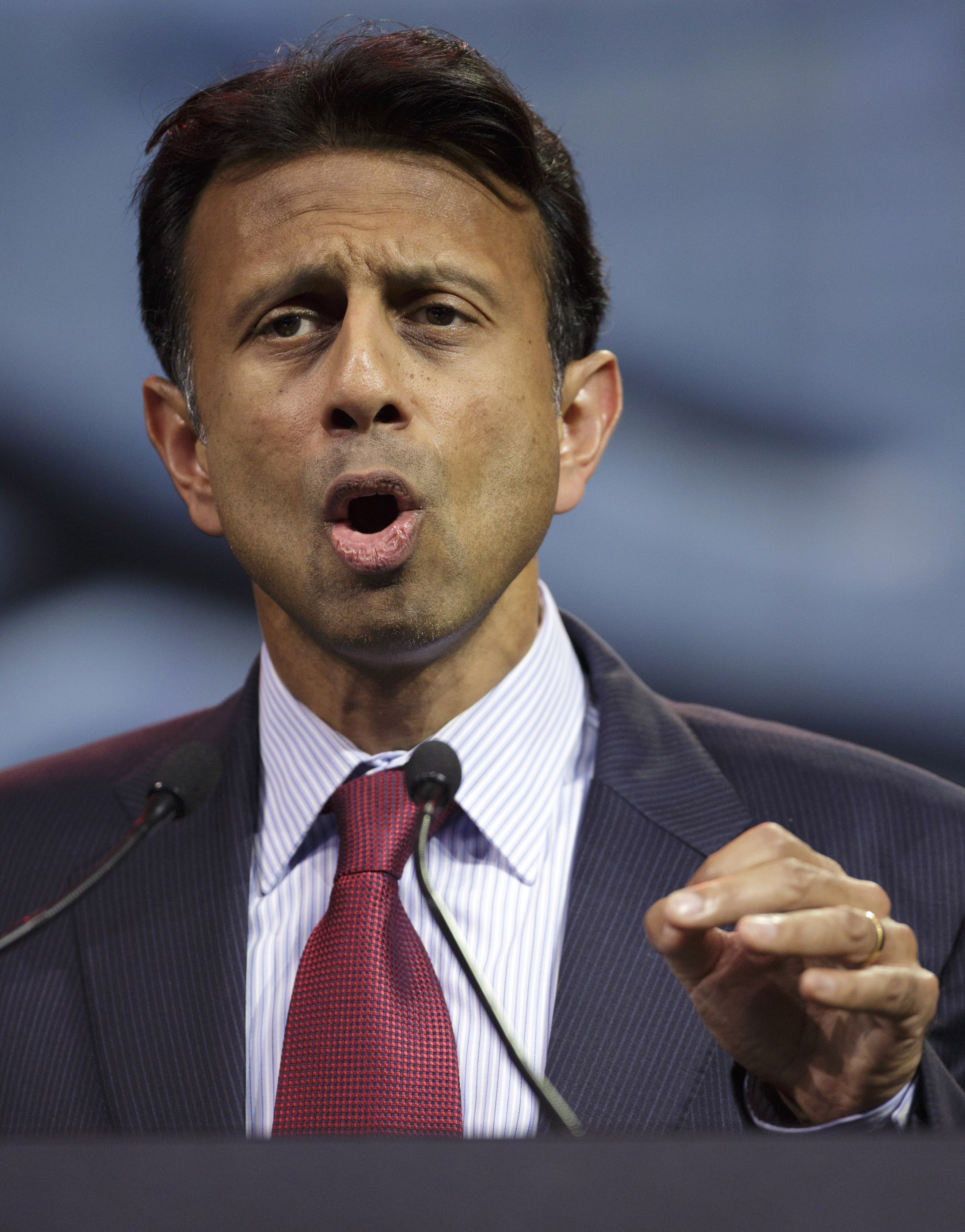
Louisiana Gov. Bobby Jindal makes no bones about setting his sights on the Oval Office, casting himself as the GOP’s ideas man in a field driven by personalities.
Outlining his second major policy proposal at a Tuesday breakfast for reporters hosted by the Christian Science Monitor, the former Rhodes scholar laid out his vision for the nation’s energy future. The emphasis, on increasing domestic production and lifting export restrictions and many other regulations, is hardly new, but represents the most comprehensive plans offered yet by any likely 2016 Republican presidential contender.
Jindal’s 180-word-per-minute speaking style and policy wonk status makes him an unlikely fit to be a major party presidential nominee, though his delivery has markedly improved at campaign-style rallies and fundraisers. But if nothing else, Jindal, himself and through his political organization American Next, is emerging as one of the party’s ideological leaders, subtly shaping the GOP’s agenda after two straight presidential losses.
Unlike some in the Republican Party, Jindal acknowledges human involvement in climate change, and opened a potential middle-path for other Republicans seeking to navigate the thorny political issue. “I’m sure that human activity is having an impact on the climate,” Jindal said. He suggested that determination should be left up to scientists, even as the overwhelming body of scientific literature has found human involvement to be significant. “I’d leave it to the scientists to determine how much and what that means,” he adds. But Jindal argues that the U.S. shouldn’t unilaterally cut back on emissions, but rather work with international trade partners to cut back on the release of greenhouse gasses, arguing that tightening restrictions at home only makes the U.S. less competitive as less developed countries increase their harmful emissions. “Simply exporting coal to other countries to burn doesn’t do anything,” Jindal said.
“If we simply take unilateral actions, all we’re going to do is drive energy intensive manufacturing overseas,” Jindal said.
Calling the Obama administration “science deniers” for failing to authorize the Keystone XL pipeline despite multiple environmental reviews, Jindal argued “there is no scientific basis, no factual basis [for delay] other than pure politics.”
Jindal was the architect of the GOP’s latest effort to push back on Democratic “war on women” attacks with a proposal to make contraceptives available over-the-counter. Jindal defended the plan from Democratic critics who argued that it would raise costs for women, saying he believes insurers would cover over-the-counter purchases. “It would be cheaper for them to pay for this over the counter the drug than pay for the number of births it would otherwise prevent,” he said.
Sidestepping a question on evolution, Jindal, a Catholic, wouldn’t offer his own views on the subject, but said “I believe that local schools should make the decision about what they teach.” He added that “as a father, I want my kids to be taught about evolution in their schools.”
Despite his efforts to remake his party’s thinking, Jindal’s poll numbers have been moribund in early states. A CNN/ORC poll of voters in the early state of New Hampshire released Monday found Jindal the first pick of just 3% of Republicans and independents who plan to cast ballots in the 2016 GOP primary. “It suggests that ya’ll don’t have as many readers as I thought you did,” Jindal quipped to a room of print reporters, acknowledging his low name-recognition, “maybe I need to go straight to the bloggers.” He says he plans to make up his mind on 2016 after the November midterm elections, and would only run if he believed he had a “unique perspective” to offer voters.
More Must-Reads From TIME
- The 100 Most Influential People of 2024
- The Revolution of Yulia Navalnaya
- 6 Compliments That Land Every Time
- What's the Deal With the Bitcoin Halving?
- If You're Dating Right Now , You're Brave: Column
- The AI That Could Heal a Divided Internet
- Fallout Is a Brilliant Model for the Future of Video Game Adaptations
- Want Weekly Recs on What to Watch, Read, and More? Sign Up for Worth Your Time
Contact us at letters@time.com